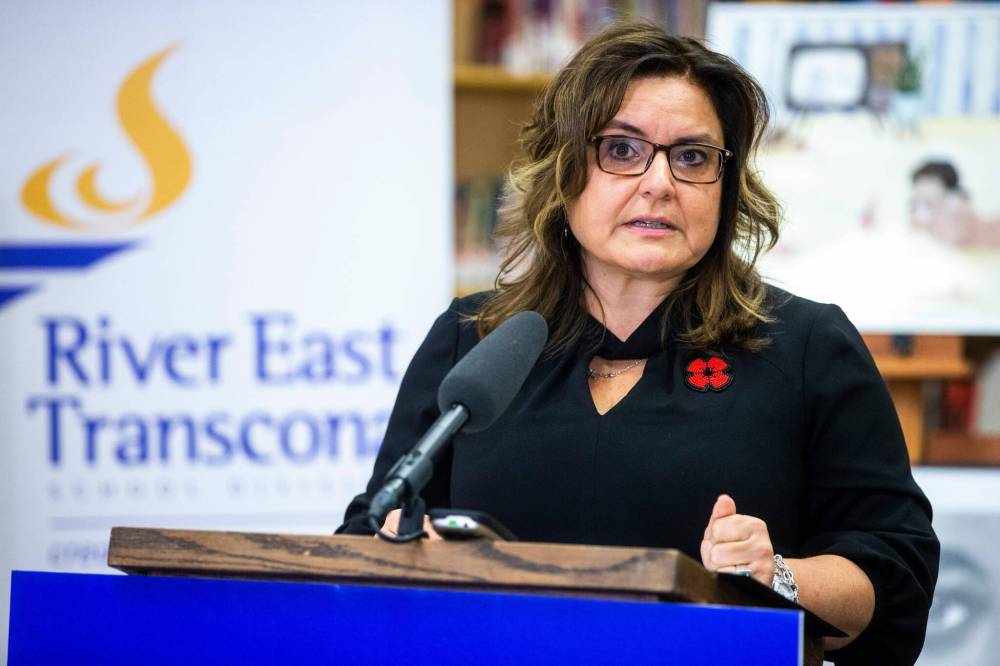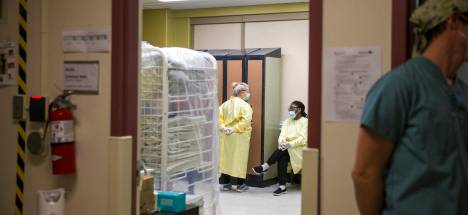Cutting class: two city divisions scrap international high school program
Read this article for free:
or
Already have an account? Log in here »
To continue reading, please subscribe:
Monthly Digital Subscription
$0 for the first 4 weeks*
- Enjoy unlimited reading on winnipegfreepress.com
- Read the E-Edition, our digital replica newspaper
- Access News Break, our award-winning app
- Play interactive puzzles
*No charge for 4 weeks then price increases to the regular rate of $19.00 plus GST every four weeks. Offer available to new and qualified returning subscribers only. Cancel any time.
Monthly Digital Subscription
$4.75/week*
- Enjoy unlimited reading on winnipegfreepress.com
- Read the E-Edition, our digital replica newspaper
- Access News Break, our award-winning app
- Play interactive puzzles
*Billed as $19 plus GST every four weeks. Cancel any time.
To continue reading, please subscribe:
Add Free Press access to your Brandon Sun subscription for only an additional
$1 for the first 4 weeks*
*Your next subscription payment will increase by $1.00 and you will be charged $16.99 plus GST for four weeks. After four weeks, your payment will increase to $23.99 plus GST every four weeks.
Read unlimited articles for free today:
or
Already have an account? Log in here »
Hey there, time traveller!
This article was published 13/04/2023 (975 days ago), so information in it may no longer be current.
A renowned high school program with an international reputation for preparing students for university just became more competitive for high-achievers across Winnipeg.
The number of local schools that offer International Baccalaureate courses is being reduced significantly next year — to two from five.
Only Kelvin High School in the Winnipeg School Division and the francophone board’s Collège Louis-Riel will accept new IB candidates in 2023-24.
“We are devastated. My daughter’s upset; it’s a lost opportunity for her,” said Chris Wiebe, one of the parents who learned this week that the River East Transcona School Division would no longer offer the specialty stream at Miles Macdonell Collegiate.
In a letter to families, superintendent Sandra Herbst and board chairwoman Colleen Carswell revealed Wednesday the division is phasing out the program following “recent budget deliberations.”
“RETSD is confident in the quality of education offered in all senior years schools in our division,” states the letter, in which division leaders noted the advanced placement courses currently available and plans to expand those offerings.
“We are devastated. My daughter’s upset; it’s a lost opportunity for her.”–Chris Wiebe
St. James-Assiniboia School Division officials have also announced intakes for IB, historically offered at both Sturgeon Heights Collegiate and Westwood Collegiate, will be “suspended” this fall.
The internationally recognized diploma program was designed for disciplined students aged 16 to 19, and typically involves preparatory classes prior to Grade 11.
The enriched curriculum includes courses in six subject areas: literature studies; language acquisition; sciences; individuals and societies; mathematics; and the arts.
Heavy course loads are an IB staple. Student portfolios, oral assessments and written exams, which are couriered to a global facility for marking to ensure standardization, are commonplace. The final-year offerings include university-level material to challenge learners.
Throughout the program, teachers emphasize the process of building knowledge, team-building activities, and independent research and essay-writing.
“It’s a holistic program where it develops (students’) self-management, thinking skills, communication skills, research, social skills, collaboration.”–Melani Decelles
“It’s a holistic program where it develops (students’) self-management, thinking skills, communication skills, research, social skills, collaboration,” said Melani Decelles, an IB mathematics teacher.
“It’s not just an academic program. Basically, they learn how to learn independently,” she said.
In addition to formal studies, program graduates must complete 150 volunteer hours.
Decelles, who oversees IB at Kelvin, said participants gain confidence, become self-learners and accept challenges rather than avoid them, owing to the program.
The IB co-ordinator also noted it’s “a very expensive program,” because teachers require IB training and exams are mailed to a central site.
River East Transcona’s leader indicated students currently in their first year of the two-year IB program will have the opportunity to obtain a specialty diploma next year, but Grade 9 and 10 students who wanted to pursue it will be redirected.
MIKAELA MACKENZIE / WINNIPEG FREE PRESS Superintendent Sandra Herbst said in a statement the decision to end the program — which has a 41-year legacy at Miles Mac — was made “only after considering all short- and long-term (budget) options.”
Herbst said in a statement the decision to end the program — which has a 41-year legacy at Miles Mac — was made “only after considering all short- and long-term (budget) options.”
“In most years, interest in the program far exceeded its capacity. As such, RETSD recognizes there is a demand for similar educational enrichment opportunities for students on different pathways,” she said, adding college and university-level courses will soon be available to students at the division’s six high schools.
On the opposite side of the city, St. James-Assiniboia is gearing up to celebrate its final graduating classes of IB students in June.
Jenness Moffatt, the division’s acting superintendent, said the decision to phase out the program was made in January 2020 because of declining interest and costs associated with staffing smaller class sizes.
Wiebe said his family thought IB would challenge his daughter and differentiate her applications to post-secondary institutions.
“I’m worried about the future; I’m worried about not only my kids, but all Manitobans. I’m worried about kids having access to these programs.”–Chris Wiebe
“I’m worried about the future; I’m worried about not only my kids, but all Manitobans. I’m worried about kids having access to these programs,” said the RETSD father, who is running for office in Dawson Trail under the NDP banner in the upcoming provincial election.
In recent weeks, school boards citywide have criticized the province for not providing consistent funding that keeps pace with inflation and student needs.
While noting the province is responsible for the provision of school funding, Education Minister Wayne Ewasko made a point of stating that democratically elected boards decide how to distribute their allotments.
In a statement, Ewasko said RETSD received one of the greatest funding increases of all divisions for the coming year, the equivalent of a 9.8 per cent hike or $11-million injection.
The division’s funding has increased by 26 per cent since 2020-21, he said, noting enrolment has risen about six per cent.
maggie.macintosh@freepress.mb.ca
Twitter: @macintoshmaggie

Maggie Macintosh
Education reporter
Maggie Macintosh reports on education for the Free Press. Originally from Hamilton, Ont., she first reported for the Free Press in 2017. Read more about Maggie.
Funding for the Free Press education reporter comes from the Government of Canada through the Local Journalism Initiative.
Every piece of reporting Maggie produces is reviewed by an editing team before it is posted online or published in print — part of the Free Press‘s tradition, since 1872, of producing reliable independent journalism. Read more about Free Press’s history and mandate, and learn how our newsroom operates.
Our newsroom depends on a growing audience of readers to power our journalism. If you are not a paid reader, please consider becoming a subscriber.
Our newsroom depends on its audience of readers to power our journalism. Thank you for your support.












